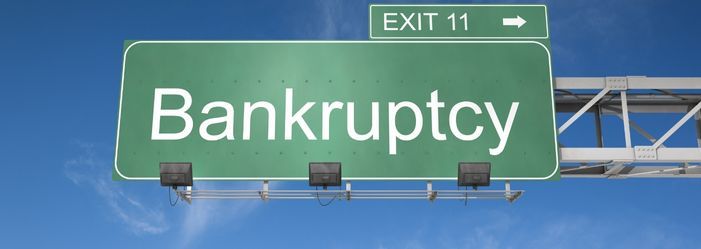Making the Most of Bankruptcy: The Perfect Time to File

Disclaimer: We are not qualified bankruptcy professionals and are not giving advice. Always speak with a qualified professional before making any legal or financial decisions.
Bankruptcy is a legal action that can either erase most of your debt or restructures it so that you can make one monthly payment on your debts. The main difference is in how much debt you have and if you meet a means test based on your state's average income.
Bankruptcy can be that fresh start you hear about, but it should be your last resort choice, not your first choice of financial management strategies. A Bankruptcy stays on your credit report for up to ten years, making it very difficult to get loans with good interest rates, mortgages, and even some jobs.
The Bankruptcy laws and requirements are very complex, so hiring a qualified attorney may be your best option when filing a bankruptcy petition.
They understand more than the bankruptcy basics we are discussing in this article.
Understanding your bankruptcy options
There are several types of bankruptcy options, each named for the chapter in the federal bankruptcy code that defines the type. All bankruptcy cases are heard in federal courts. For most people, there are only two that matter. These are Chapter 7 and Chapter 13.
Chapter 7 Bankruptcy
Chapter 7 bankruptcy is a way to erase the debt. You may lose most of your assets, but your debt will probably be completely erased. Bankruptcy is a relatively fast process that takes between four and six months to complete.
Chapter 7 is based on a means test. For most people, if your household income exceeds your state's median household income, you may not be eligible for Chapter 7. The only way to determine this is to take a chapter 7 means test.
Other requirements include the following criteria:
- Be an individual or a partnership, corporation, or other business entity with business debts
- Pass a chapter 7 means test
- Receive credit counseling within 180 days before the bankruptcy filing
- Meet the state's minimum residency requirements
- Not have filed any bankruptcy within 180 days before the bankruptcy court date and:
- you did not show up for the court date
- you had a previous fraudulent bankruptcy case
- your case was dismissed after a creditor asked the court to lift the automatic stay
- Not have filed Chapter 7 within 8 year
- Not have filed Chapter 13 within 6 years
Once you file bankruptcy, you must complete the following:
- Attend a 341 Creditor meeting
- Complete a financial management course within 45 days of the 341 meeting
- File a debt management plan if developed during the credit counseling
Who should consider chapter 7 bankruptcy?
If you meet some or all of the following conditions, you may want to consider bankruptcy.
- total debts are more than half your annual income
- most debt is unsecured debt like personal loans, medical bills, and credit card debt
- it will take at least 5 years to pay off your debt making monthly payments
- your debt interferes with life
- you have little to no disposable income after monthly expenses
- your current monthly income is below your state's median household income
Chapter 13 Bankruptcy
Chapter 13 bankruptcy is the reorganization of debt. If you file for chapter 7 bankruptcy but can not meet the means test, your bankruptcy will most likely be converted to Chapter 13.
There is also a limit on the amount of debt you can have. It takes up to five years to have your bankruptcy discharged.
In Chapter 13, you generally get to keep your property, and you are offered a repayment plan to catch up on non-dischargeable debt payments like mortgages and car loans.
Other requirements include the following criteria:
- Be an individual (businesses can not file Chapter 13)
- Fail a chapter 7 means test
- Attend a credit counseling course within 180 days before filing for bankruptcy
- Meet the state's minimum residency requirements
- You are up-to-date on tax filings
- You are employed with enough income to cover the required monthly payment plan
Once you file for bankruptcy, you must complete the following:
- Attend a 341 Creditor meeting
- Complete a financial management course within 45 days of the 341 meeting
- File a debt management plan if developed during the credit counseling course
Who should consider chapter 13 bankruptcy?
If you meet some or all of the following conditions, you may want to consider bankruptcy.
- Your income exceeds the Chapter 7 means test
- You are behind on a mortgage or car loan payment but can pay the arrears over three to five years
- You want to prevent wage garnishment while paying off a tax bill, overdue support, or other non-dischargeable debt
- You want to keep nonexempt property that would be sold in a Chapter 7 bankruptcy
Family farmers, ranchers, and financially distressed municipalities must consider other forms of bankruptcy.
Student loan debt is not necessarily dischargeable. Most student loans require you to prove that a repayment schedule will cause undue hardship before student debt can be discharged.
Time Limits
While you can file bankruptcy as often as you need, there are time limits.
Time limits are as follows:
Chapter 7 after a Chapter 7 discharge: 8 years
Chapter 13 after a Chapter 13 discharge: 2 years
Chapter 7 after a Chapter 13 discharge: 6 years
Chapter 13 after a Chapter 7 discharge: 4 years
Bankruptcy Attorney
Bankruptcy is a legal process that requires mountains of paperwork and loads of time. It can be frustrating to file all the paperwork properly, understand the legal jargon, and deal with a court system.
Hiring a qualified bankruptcy lawyer might seem expensive, but the lawyer can explain all the pros and cons of each chapter of bankruptcy. They will explain which is your best option and guide you through each step of the bankruptcy process.
In some cases, both your bankruptcy filing fee and your attorney fees can be rolled into a bankruptcy repayment plan.
Assessing your financial situation
Before you file bankruptcy, you may want to speak with a bankruptcy lawyer to see if this is your best option. They may recommend a different debt relief solution like debt settlement or debt consolidation.
A lot of your financial documents will be a public record once you file bankruptcy.
You will be asked to disclose your assets, debts, and other income during bankruptcy. It is absolutely imperative that you disclose everything honestly and on time. Attempting to hide assets or income can result in your case being dismissed as fraud, and you can end up with criminal fines and even incarceration.
You will be asked to turn over bank statements, all outstanding debts, child support payments and requirements, and any other financial documents the bankruptcy trustee requires.
Your bankruptcy lawyer will help you avoid these outcomes. If you can not afford an attorney, you may be able to find legal aid at a local university law school that offers free legal services.
Timing of filing for bankruptcy
The best time to file bankruptcy is never. However, if you must file bankruptcy to save your future, the best time is when you have all your finances laid out and understood, possibly with an attorney's help. If you are facing immediate foreclosure, court cases, or seizures of assets, the best time may be now.
If you have pending creditor lawsuits, tax liens, or wage garnishments, you can stop these by filing bankruptcy. The court will issue an immediate stay as soon as you file, stopping those actions.
In terms of when, many people file for bankruptcy during the first quarter of the year (January, February, and March) because they can use their refund to pay for bankruptcy court costs and a bankruptcy lawyer.
Others file at the end of the month as it makes it easier to file a means test based on your last 60 days of income.
Other reasons to delay filing bankruptcy include the following:
- Opportunity to modify a mortgage. If you are trying to delay foreclosure by filing bankruptcy, a lender may not want to negotiate with you after you file.
- High Recent Income. If you have made bank for the last few paystubs, wait until the amount goes down. Otherwise, it counts against you on your means test.
- You have received a tax refund. You may want to wait until you have spent it. Otherwise, you get to turn it over with other assets.
- You have a property that exceeds exception maximums. You will file property exemptions (these differ for each state). If your exemptions are higher than the maximum amount and you can wait a few months for a vehicle or other item to drop in value, waiting to file makes sense.
- You can sell your non-exempt assets. Property like cars, jewelry, land, and other assets may be seized and sold to repay debts. If you sell the property at fair market value before filing bankruptcy, you can use it to pay creditors and avoid bankruptcy.
- You expect to have new debts. If you expect to acquire large debts in the immediate future (surgery, etc.), you may want to wait as bankruptcy only considers debt as your bankruptcy filing date.
You will have the best success with bankruptcy if you have the help of an attorney and are ready to follow your court-mandated budget. Consulting a bankruptcy attorney is highly advised, which is why we mention it more than once in this article.
FAQs
Our Conclusion
Bankruptcy is a condition best avoided if at all possible. If you are facing the loss of your home or assets or other crushing financial burdens, you may want to speak with a bankruptcy lawyer to stop these actions. Ignoring your financial situation will not help you at all.
If you are at the point where bankruptcy seems like your only option, contact Pacific Debt. We can help you understand all your debt relief options.
If bankruptcy is your best option, we strongly advise you to contact a qualified bankruptcy attorney to guide you through the process.
Disclaimer: We are not qualified bankruptcy professionals and are not giving advice. Always speak with a qualified professional before making any legal or financial decisions.
✔ Accredited by Better Business Bureau with BBB A+ rating (4.93 rating and 1678 reviews)
✔ US News and World Reports and Bankrate ranked Pacific Debt Relief as one of “The Best Debt Relief Companies of 2024”
✔ 6.9 star rating by BestCompany.com (over 2379 client reviews)
✔ 4.8 star rating by TrustPilot based (over 1613 verified consumer reviews)
✔ ConsumerAffairs.com Accredited (over 544 verified reviews with an average rating of 5 stars)
✔ A Top 10 Rated Compan by TopTenReviews.com , ConsumersAdvocate.com and Top10debtconsolidation.com
✔ 4.6 star rating by Google (229 client reviews)
✔ 100% rating by SuperMoney (9 client reviews)
Reduce Your Credit Card Debt By Up to Half

BBB Reviews | 4.9/5.0 Rating









 Do Not Sell My Personal Information
Do Not Sell My Personal Information